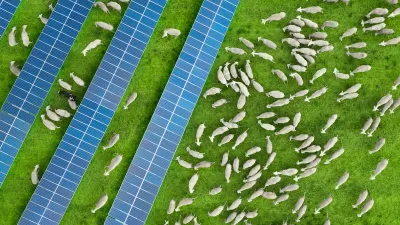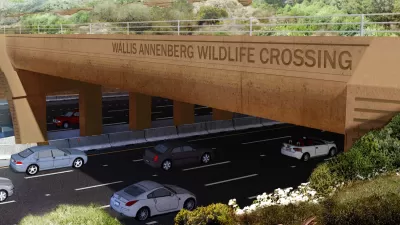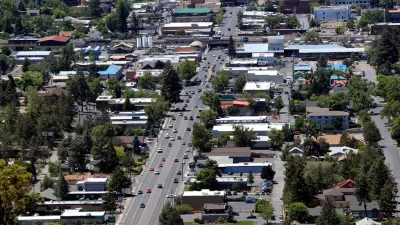Momentum Mag picks up the news of a study out of Harvard University that will produce more than one double take.

"Since biking burns fat and not fossil fuels, most everyday cyclists are comfortable with the notion that their commute is a daily contribution to the global fight against climate change," writes Hilary Angus to begin an article in Momentum Mag. But that assumption about the environmental friendliness of riding bikes only sets up the drama of the post:
In findings published through Harvard University’s Keith Group, [Daniel] Thorpe singles out cyclists who consume diets heavy in animal byproducts – specifically those who follow the Paleo Diet – as being more harmful to the environment than individuals who eat plant-based diets and drive low-emission vehicles.
Basically, your bacon-fueled bike commute is killing the planet, so you best be trading in that Schwinn for a Prius and a pile of chickpeas.
Angus goes on to explain the methodology of the study, which relies on measures known as carbon dioxide equivalents (CO2e) and Global Warming Potential (GWP). Thorpe's conclusions also take into account the land use impact of the different travel and diet modes. According to Thorpe's writing in the study, his work is really about the huge effect of agricultural practices on the environment.
Angus concludes the article with a critique of the study, but is also willing to say: "you really shouldn't be eating a Paleo diet."
FULL STORY: Cycling Can Be Less Sustainable than Driving, Argues Harvard Researcher

Pennsylvania Mall Conversion Bill Passes House
If passed, the bill would promote the adaptive reuse of defunct commercial buildings.

Coming Soon to Ohio: The Largest Agrivoltaic Farm in the US
The ambitious 6,000-acre project will combine an 800-watt solar farm with crop and livestock production.

World's Largest Wildlife Overpass In the Works in Los Angeles County
Caltrans will soon close half of the 101 Freeway in order to continue construction of the Wallis Annenberg Wildlife Crossing near Agoura Hills in Los Angeles County.

California Grid Runs on 100% Renewable Energy for Over 9 Hours
The state’s energy grid was entirely powered by clean energy for some portion of the day on 37 out of the last 45 days.

New Forecasting Tool Aims to Reduce Heat-Related Deaths
Two federal agencies launched a new, easy-to-use, color-coded heat warning system that combines meteorological and medical risk factors.

AI Traffic Management Comes to Dallas-Fort Worth
Several Texas cities are using an AI-powered platform called NoTraffic to help manage traffic signals to increase safety and improve traffic flow.
City of Costa Mesa
Licking County
Barrett Planning Group LLC
HUD's Office of Policy Development and Research
Mpact Transit + Community
HUD's Office of Policy Development and Research
Tufts University, Department of Urban and Environmental Policy & Planning
City of Universal City TX
ULI Northwest Arkansas
Urban Design for Planners 1: Software Tools
This six-course series explores essential urban design concepts using open source software and equips planners with the tools they need to participate fully in the urban design process.
Planning for Universal Design
Learn the tools for implementing Universal Design in planning regulations.


























